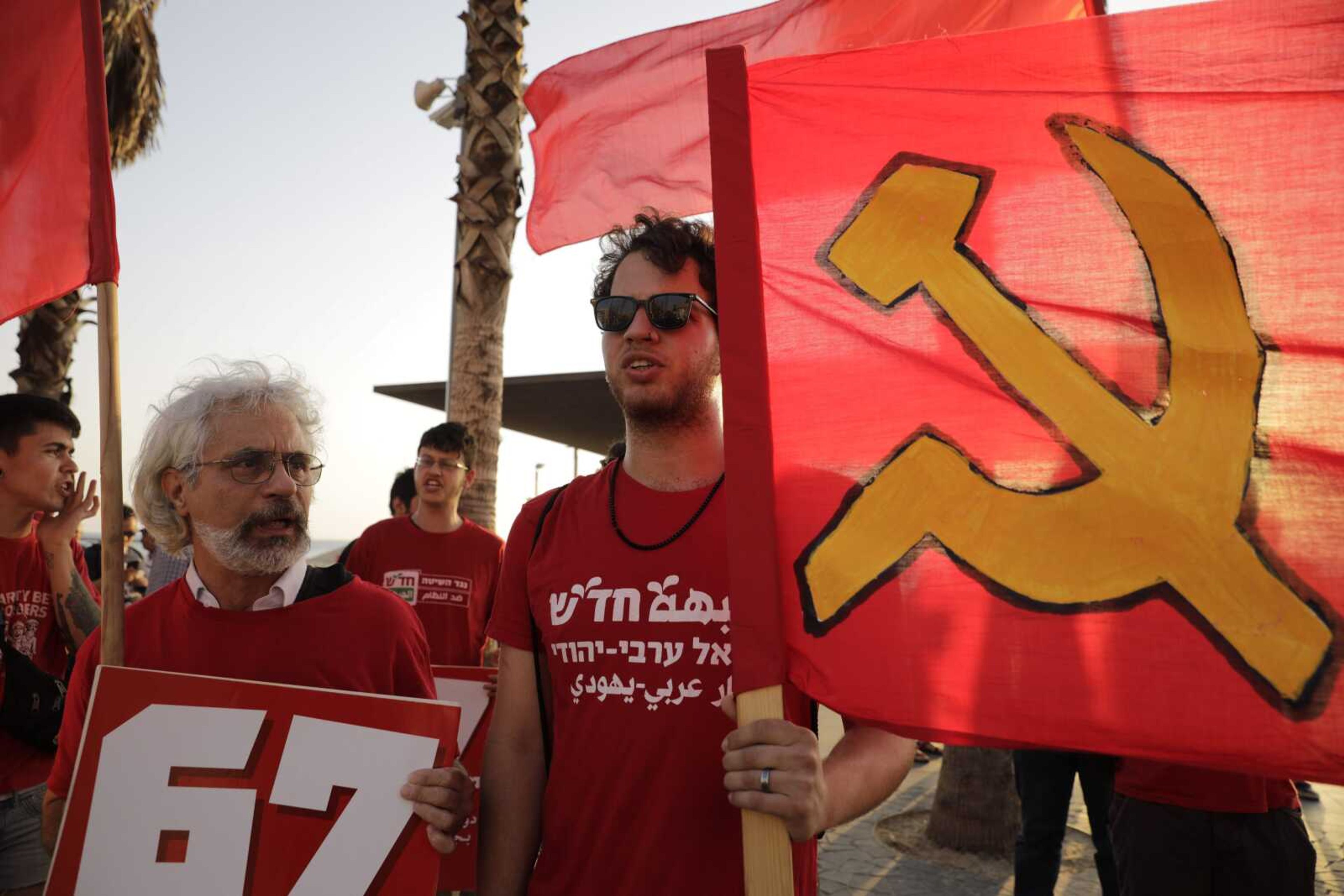Kushner urges support for Mideast plan
MANAMA, Bahrain -- President Donald Trump's son-in-law and senior adviser, Jared Kushner, appealed Tuesday for the Palestinians to consider his ambitious but harshly criticized $50 billion economic support plan despite their outright rejection of the proposal...
MANAMA, Bahrain -- President Donald Trump's son-in-law and senior adviser, Jared Kushner, appealed Tuesday for the Palestinians to consider his ambitious but harshly criticized $50 billion economic support plan despite their outright rejection of the proposal.
As Palestinians protested against the plan on the streets of the West Bank, Gaza and elsewhere, Kushner kicked off a two-day workshop in the tiny Gulf kingdom of Bahrain aimed at building support for his economic vision and overcoming heavy skepticism about prospects for its success.
"My direct message to the Palestinians is that despite what those who have let you down in the past have told you, President Trump and America has not given up on you," Kushner said, "This workshop is for you and if this is executed correctly it will lead to a better future for the Palestinian people: a future of dignity, prosperity and opportunity."
Kushner's audience in Bahrain did not include any official Palestinian delegation. Nor was Israel, which will have to sign off on many of the proposal's projects, represented by government officials. Those who heard Kushner in person were Arab finance ministers, the heads of international financial organizations and global business executives and investors.
Many countries' delegations were not headed by Cabinet ministers, an indication of their uncertainty about the proposal's viability.
The Palestinians have rejected the proposal -- which aims in 10 years to create a million new jobs, slash unemployment and improve living standards in the West Bank, Gaza and across the Middle East -- because it does not include a horizon for ending Israel's occupation and granting independence. U.S. officials say the political portion of the plan addressing such thorny issues may not be released until fall.
Kushner acknowledged a political solution is key to the success of the economic proposal. He said it was first more important to set out what is economically possible.
But, without proposals on borders, the status of Jerusalem and the fate of Palestinian refugees, the Palestinians say the economic plan is meaningless. To express their rejection, Palestinians in Gaza called a general strike Tuesday to protest the meeting, with demonstrators in the West Bank burning effigies of Trump and featuring a donkey pasted over with images of Gulf royals.
"Palestine is not for sale!" protesters chanted. "From Bahrain to Saudi Arabia we are not tempted by your millions!" they said.
Besides opposition from the intended beneficiaries of the proposal, the plan has been harshly criticized by former diplomats, aid workers and others involved in past peacemaking efforts for being unrealistic and lacking any clear description of who will pay for it.
Trump, Kushner and U.S. Treasury Secretary Steven Mnuchin argue a new approach is needed precisely because previous efforts have fallen short. They note the heads of the International Monetary Fund and the World Bank will attend and speak at the event, as will the head of FIFA, the international soccer federation, and the managers of numerous large investment funds.
The Palestinians wrote to FIFA chief Gianni Infantino on Tuesday urging him to reconsider his participation.
"How can the President of the highest governing body of football, and the most outspoken person on the importance of separating politics from sports, agree to participate in a political workshop whose objective is to determine the future of Palestine in the absence of Palestinians?" the letter said.
Enthusiasm has also been tempered by the Trump administration's refusal to endorse the creation of a Palestinian state in the West Bank, Gaza and east Jerusalem, the "two-state solution" long viewed internationally as the only viable path to lasting peace.
The Palestinians cut ties with the White House after Trump recognized contested Jerusalem as Israel's capital in December 2017 and say they will not accept a peace proposal from an administration they see as biased toward Israel. Trump's Mideast team has recently signaled it will accept Israeli annexation of parts of the West Bank, the heartland of any Palestinian state, deepening Palestinian suspicions.
Even the Arab delegations attending the meeting in Bahrain have couched their participation with reaffirmations of support for an eventual Palestinian state.
Saudi Arabia, one of the few Arab countries to send its foreign minister to the event, said it remained committed to that end with a state based on the border existing before the 1967 Arab-Israeli war.
"The Kingdom reiterates its firm position on the Palestinian cause and solving it in accordance with the Arab Peace Initiative, which called for establishing an independent Palestinian state along the borders of 1967 with East Jerusalem as its capital," the Saudi government said in a statement.
Egypt and Jordan, the only Arab nations to have signed peace deals with Israel, are sending only mid-level representatives to Bahrain and said they would not abandon demands for a Palestinian state.
At a ceremony hosted by Israel's president to mark 40 years of Egyptian-Israeli peace Tuesday, Egypt's ambassador to Israel, Khaled Azmi, said that country's "vision was, and still is, based on full nation-statehood and security for everyone in the region."
"The goal we aim to achieve through negotiations between the two parties is one that is based on justice, legitimate rights and mutual willingness to coexist in two neighboring independent states living in peace and security," he said.
Bahrain, which has close ties to the Saudis, has been criticized for hosting the conference and sharply limited the number of journalists allowed to cover it. It has defended its decision by saying its only objective is to support the "brotherly Palestinian people."
Connect with the Southeast Missourian Newsroom:
For corrections to this story or other insights for the editor, click here. To submit a letter to the editor, click here. To learn about the Southeast Missourian’s AI Policy, click here.








